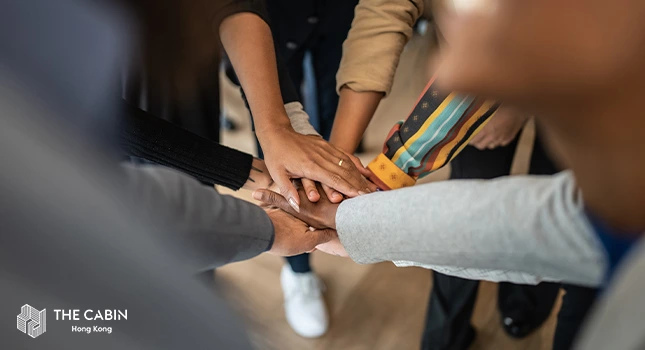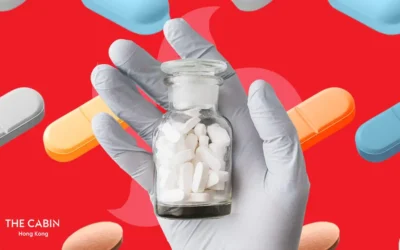
Being among other sober individuals might help you avoid feelings of loneliness and find satisfying alternatives to drinking. Having supportive people in your life may also aid in holding you accountable, increasing your self-esteem, and aiding in your journey of self-discovery. You aren’t designed to survive or heal on your own. To stay sober and lead a life free of addiction, it is important to surround yourself with people who can help you succeed.
Staying sober while having fun outings
Sobriety and the rehabilitation process might make it difficult to join in on group outings. You may have used to look forward to going out to the bar, celebrating birthdays and weddings, or just having an after-dinner drink. Now that you’re living a sober lifestyle, those are all potential sources of relapse.
The benefits of a sober community in recovery include access to events and activities free of booze and drugs. Have a good time with your pals without risking your sobriety.
Battling isolation
Isolation is a common symptom of substance abuse disorder. People who use substances sometimes isolate themselves in an effort to conceal the extent of their problem, and the stigma associated with substance abuse often drives sufferers to keep their problems to themselves.
It’s crucial to be honest about how you’re feeling, to talk about your emotions, and to accept assistance if you want to keep your recovery on track. Having a supportive group of individuals who have been through similar experiences may be invaluable while dealing with emotional upheaval and finding one’s footing again. The ability to share with others and the knowledge that you are never truly alone are both strengthened by belonging to a strong support network.
Forming meaningful relationships
After leaving treatment, you might struggle with relationships. If your goal is to stay sober, you probably won’t hit up your pals who abuse substances anymore. Having a strong sober community, whether in a treatment facility or at home, allows you to build meaningful relationships with other people who are also in recovery. You will be able to connect with others who understand what you’re going through. They know what it’s like to be dependent on substances, have cravings, feel emotionally distant or sad, lose control, and let others down. Most importantly, they want to stop using drugs and alcohol and become the greatest versions of themselves. This can lead to meaningful, long-lasting relationships.
Helping you stay accountable
Having someone to hold you responsible during your rehabilitation and in reaching your objectives is invaluable. It’s more helpful to seek and accept responsibility from a community of individuals with similar life experiences and can offer immediate feedback and guidance. Participating in a support group increases the likelihood that others will recognize your own behavioral changes and triggers. It can really help you get through the tough days, too. If you keep company with positive individuals on a regular basis, they will come to know you well and be in a better position to provide advice and guidance as you navigate life’s challenges.
Meeting individuals who care about the same things you do is a powerful source of inspiration. This need not necessarily focus on rehab. As you develop positive routines and interests, talking about them with others is a great way to stay motivated, recognize your achievements, and push through tough times. You may accomplish this by joining a group that shares your passion for running, walking, reading, or another interest.
Helping you re-learn day-to-day tasks
Addiction to drugs or alcohol causes one to neglect many of their responsibilities. Maintaining good personal hygiene and a healthy lifestyle may fall under this category. One of the most important benefits of a sober community in recovery is restoring the structure. You will rediscover how to develop a routine and keep a healthy lifestyle if you surround yourself with sober individuals. You’ll learn how to take care of yourself again, from the basics like doing laundry to the more complex tasks like looking for work, all while re-establishing your sense of independence. Even if you’re hit by a big change, like a move, a community will prove invaluable. Between moving in Hong Kong, hiring movers, and managing sobriety, it’s important to have support. For the move, experts can help you out, but for managing stress, a supportive community is key. When you share a life with other people in recovery, you may teach and learn from each other about how to take care of yourself without resorting to substance abuse.
How to form these connections
Now you know the benefits of a sober community in recovery. However, you might be wondering how to find and participate in such communities.
Get involved after treatment
It can be challenging to reintegrate into the recovery community outside of formal support groups after leaving treatment. A good way to combat this is joining recovery houses, a form of step-down care to help you before getting out into the real world again. Secondary care like this can make all the difference in your recovery, and it can also help you find a sober community to bring into your new, sober life.
Visit meetings
Going to meetings for recovering addicts is a great opportunity to meet others who are also living a clean lifestyle. The key is to find support groups that work for you, whether they’re 12-step meetings like AA or NA or something else entirely. Make friends and a sober support system by talking to others at the meetings.
Try volunteering in the sober communities
Volunteering, sponsoring sober activities, and offering to teach others about addiction are all great ways to become involved. Participating in these events will allow you to broaden your network of sober friends. These activities might also teach you how to repair former relationships hindered by substance abuse.
Final words
Those struggling with addiction often find themselves isolated. We hope our article has helped you learn about the benefits of a sober community in recovery. A support system like this can put you in touch with others who can relate to your struggles. This means they can be there for you and offer tangible advice on how to go through recovery. Contact us today to find out how we can help.



